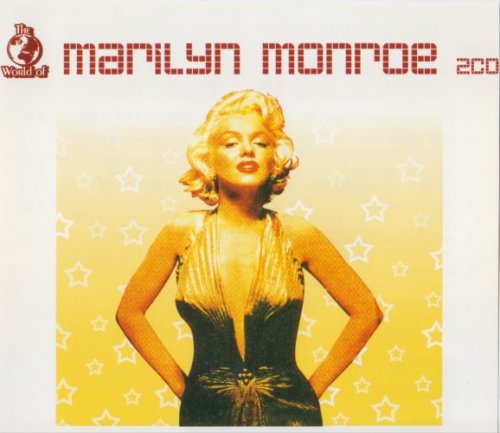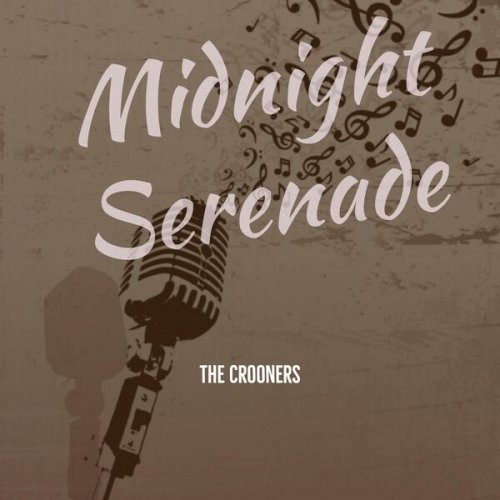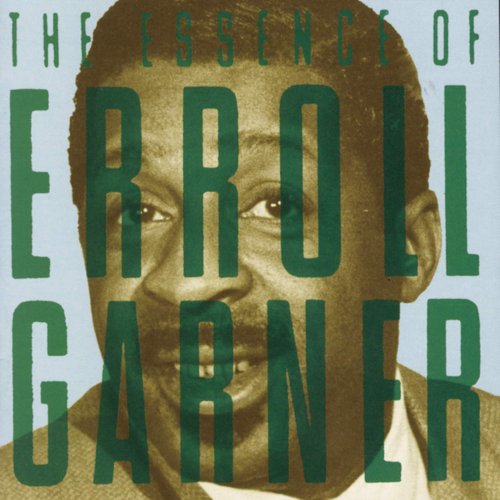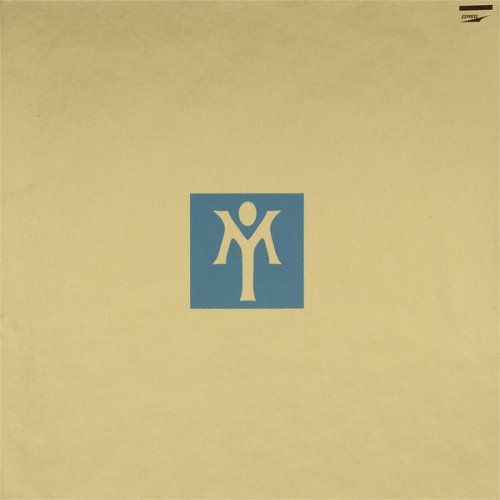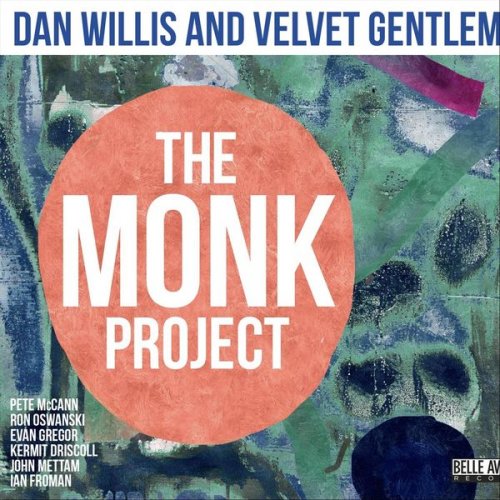The Rolling Stones - Beggars Banquet (50th Anniversary Edition) (2018) [Hi-Res]
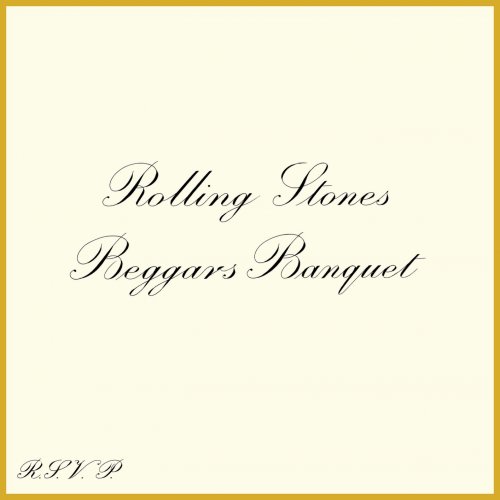
Artist: The Rolling Stones
Title: Beggars Banquet (50th Anniversary Edition)
Year Of Release: 2018
Label: ABKCO Music & Records
Genre: Rock
Quality: 24bit-192kHz FLAC (tracks)
Total Time: 39:41
Total Size: 1.90 GB
WebSite: Album Preview
Tracklist:Title: Beggars Banquet (50th Anniversary Edition)
Year Of Release: 2018
Label: ABKCO Music & Records
Genre: Rock
Quality: 24bit-192kHz FLAC (tracks)
Total Time: 39:41
Total Size: 1.90 GB
WebSite: Album Preview
1. Sympathy For The Devil (50th Anniversary Edition) 06:17
2. No Expectations (50th Anniversary Edition) 03:56
3. Dear Doctor (50th Anniversary Edition) 03:22
4. Parachute Woman (50th Anniversary Edition) 02:20
5. Jigsaw Puzzle (50th Anniversary Edition) 06:05
6. Street Fighting Man (50th Anniversary Edition) 03:15
7. Prodigal Son (50th Anniversary Edition) 02:51
8. Stray Cat Blues (50th Anniversary Edition) 04:37
9. Factory Girl (50th Anniversary Edition) 02:08
10. Salt Of The Earth (50th Anniversary Edition) 04:48
Beggars Banquet has long been a landmark album in The Rolling Stones’ history, signalling the beginning of what is considered their most prolific album era as well as indicating the end of the original line up’s work together.
Recorded between March and July of 1968 at Olympic Sound Studios in London, mixed at Sunset Sound in Los Angeles, Beggars Banquet was the first Stones album produced by Jimmy Miller, and marks the start of what is considered their most prolific album era. Opening with the iconic hit “Sympathy For The Devil,” the album features many of The Stones’ most memorable tracks, including “Street Fighting Man,” “No Expectations,” and “Parachute Woman”. Beggars Banquet (50th Anniversary Edition) is housed in an overwrap of the “inoffensive” wedding invitation art, which was initially issued as a replacement cover when the original intended album art was rejected. The landmark album has been newly mastered by Grammy Award winning engineer Bob Ludwig and will be available on all formats.
In the August 10, 1968 issue of Rolling Stone, magazine founder and editor Jann Wenner previewed the album for his readers noting, “The Rolling Stones have returned, and they are bringing back rock and roll with them. They have finished their next album — titled Beggars’ Banquet — and it is the best record they have yet done. In all aspects it is a great album; great Rolling Stones’ material and performance; a great rock and roll album, without pretense, an achievement of significance in both lyrics and music.” Wenner also put Mick on the cover of that issue, with a boastful headline, “The Stones Make the Great Comeback of Their Career.”
Long after its original release, legendary rock journalist and author Ben Fong-Torres heralded Beggars Banquet as “an album flush with masterful and growling instant classics” that “responds more to the chaos of ’68 and to themselves than to any fellow artists . . . the mood is one of dissolution and resignation, in the guise of a voice of ambivalent authority.”
As Fong-Torres refers to, “Street Fighting Man,” the most politically charged Stones song of all time, was partially inspired by Mick Jagger’s first-hand experience at an anti-war rally at the U.S. embassy in London where he saw activist Tariq Ali speak. Simultaneously, student protests in Paris were taking place, leading to a massive uprising that May in which almost a quarter of the nation participated in strikes and demonstrations. Jagger told Rolling Stone in 1997, “It was a very strange time in France. But not only in France but also in America, because of the Vietnam War and these endless disruptions . . . I thought it was a very good thing at the time. There was all this violence going on. I mean, they almost toppled the government in France . . .”
February 1969 marked the album’s second single, “Sympathy for the Devil” written mainly by Jagger after Marianne Faithfull gave him a copy of Mikhail Bulgakov’s novel The Master and Margarita. The story follows the devil as he visits Stalin-era Soviet Union. Originally intended to be played in a folk style, Richards suggested changing the tempo and adding percussion, turning the rhythm into a samba. The evolution of this incredible song was captured in the Jean-Luc Godard film Sympathy For The Devil aka ONE PLUS ONE.
The original intended album cover art for Beggars Banquet was initially rejected both by London Records, their U.S. label as well as Decca, their UK label. The Michael Vosse photograph of a vandalized restroom wall (Jagger and Richards provided the graffiti, the restroom was inside a Porsche dealership) was deemed offensive, possibly because the top of an open toilet is captured in the shot. The replacement cover was simply the band name and album title written in the style of a wedding invitation, and remained that way for several years before the intended bathroom photo art was no longer perceived as offensive, and finally gained its rightful place on the cover. Beggars Banquet (50th Anniversary Edition) pays tribute to both, as the package will be housed with the Vosse image, with an overwrap of the “inoffensive” wedding invitation art.
Digitally remastered
Recorded between March and July of 1968 at Olympic Sound Studios in London, mixed at Sunset Sound in Los Angeles, Beggars Banquet was the first Stones album produced by Jimmy Miller, and marks the start of what is considered their most prolific album era. Opening with the iconic hit “Sympathy For The Devil,” the album features many of The Stones’ most memorable tracks, including “Street Fighting Man,” “No Expectations,” and “Parachute Woman”. Beggars Banquet (50th Anniversary Edition) is housed in an overwrap of the “inoffensive” wedding invitation art, which was initially issued as a replacement cover when the original intended album art was rejected. The landmark album has been newly mastered by Grammy Award winning engineer Bob Ludwig and will be available on all formats.
In the August 10, 1968 issue of Rolling Stone, magazine founder and editor Jann Wenner previewed the album for his readers noting, “The Rolling Stones have returned, and they are bringing back rock and roll with them. They have finished their next album — titled Beggars’ Banquet — and it is the best record they have yet done. In all aspects it is a great album; great Rolling Stones’ material and performance; a great rock and roll album, without pretense, an achievement of significance in both lyrics and music.” Wenner also put Mick on the cover of that issue, with a boastful headline, “The Stones Make the Great Comeback of Their Career.”
Long after its original release, legendary rock journalist and author Ben Fong-Torres heralded Beggars Banquet as “an album flush with masterful and growling instant classics” that “responds more to the chaos of ’68 and to themselves than to any fellow artists . . . the mood is one of dissolution and resignation, in the guise of a voice of ambivalent authority.”
As Fong-Torres refers to, “Street Fighting Man,” the most politically charged Stones song of all time, was partially inspired by Mick Jagger’s first-hand experience at an anti-war rally at the U.S. embassy in London where he saw activist Tariq Ali speak. Simultaneously, student protests in Paris were taking place, leading to a massive uprising that May in which almost a quarter of the nation participated in strikes and demonstrations. Jagger told Rolling Stone in 1997, “It was a very strange time in France. But not only in France but also in America, because of the Vietnam War and these endless disruptions . . . I thought it was a very good thing at the time. There was all this violence going on. I mean, they almost toppled the government in France . . .”
February 1969 marked the album’s second single, “Sympathy for the Devil” written mainly by Jagger after Marianne Faithfull gave him a copy of Mikhail Bulgakov’s novel The Master and Margarita. The story follows the devil as he visits Stalin-era Soviet Union. Originally intended to be played in a folk style, Richards suggested changing the tempo and adding percussion, turning the rhythm into a samba. The evolution of this incredible song was captured in the Jean-Luc Godard film Sympathy For The Devil aka ONE PLUS ONE.
The original intended album cover art for Beggars Banquet was initially rejected both by London Records, their U.S. label as well as Decca, their UK label. The Michael Vosse photograph of a vandalized restroom wall (Jagger and Richards provided the graffiti, the restroom was inside a Porsche dealership) was deemed offensive, possibly because the top of an open toilet is captured in the shot. The replacement cover was simply the band name and album title written in the style of a wedding invitation, and remained that way for several years before the intended bathroom photo art was no longer perceived as offensive, and finally gained its rightful place on the cover. Beggars Banquet (50th Anniversary Edition) pays tribute to both, as the package will be housed with the Vosse image, with an overwrap of the “inoffensive” wedding invitation art.
Digitally remastered
Download Link Isra.Cloud>>>
Beggars_Banquet_50th_Anniversary_Edition.rar - 1.9 GB
Beggars_Banquet_50th_Anniversary_Edition.rar - 1.9 GB
![Trondheim Jazz Orchestra & Alf Hulbækmo - Skumringsbarda (2026) [Hi-Res] Trondheim Jazz Orchestra & Alf Hulbækmo - Skumringsbarda (2026) [Hi-Res]](https://www.dibpic.com/uploads/posts/2026-01/1768741554_cover.jpg)
![Hank Crawford - The Soul Clinic (1962) [2022] Hi-Res Hank Crawford - The Soul Clinic (1962) [2022] Hi-Res](https://www.dibpic.com/uploads/posts/2026-01/1768855659_cover.jpg)
